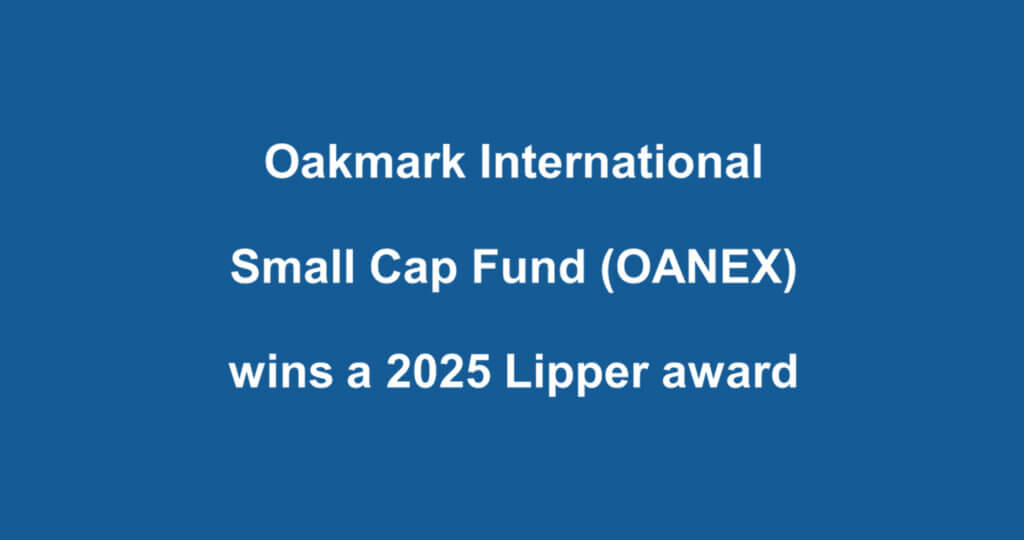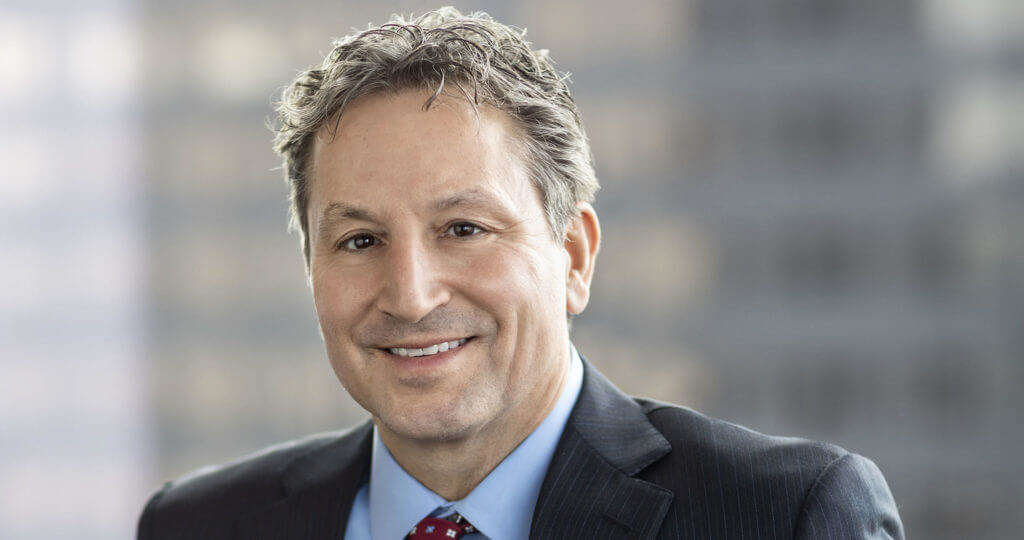Oakmark International Small Cap Fund - Investor Class
Average Annual Total Returns 09/30/15
Since Inception 11/01/95 9.36%
10-year 5.32%
5-year 5.06%
1-year -3.70%
3-month -11.12%
Gross Expense Ratio as of 09/30/14 was 1.31%
Past performance is no guarantee of future results. The performance data quoted represents past performance. Current performance may be lower or higher than the performance data quoted. The investment return and principal value vary so that an investor’s shares when redeemed may be worth more or less than the original cost. The performance of the Fund does not reflect the 2% redemption fee imposed on shares redeemed within 90 days of purchase. To obtain the most recent month-end performance data, view it here.
Both the Oakmark International Small Cap Fund and the MSCI World ex U.S. Small Cap Index declined 4% for the fiscal year ended September 30. For the recent quarter the Fund declined 11%, underperforming the MSCI World ex U.S. Small Cap Index, which declined 8% for the same period. Since the Fund’s inception in November 1995, it has returned an average of 9% per year.
Treasury Wine Estates (Australia), the world’s largest listed wine company, was the biggest contributor to performance for the quarter. The company reported fiscal year results in August, which showed a significant improvement in the company’s Asian business. Volumes in the Chinese market rose 36% in the second half of the year, and significant potential remains as China represents well under 50% of the company’s Asian sales. The historically low market shares in China have left the company unaffected by gift-giving measures in China. A revamp of the company’s distribution model has allowed it to significantly improve results, and management believes the company is just scratching the surface of its potential in China. The company also seems to have successfully resolved past inventory issues in North America, allowing management to focus on growing the business. We remain pleased with CEO Mike Clarke’s ability to drive results and are confident that Treasury Wine Estates’ leadership team will continue to increase overall value in order to benefit shareholders.
dorma+kaba Holding (Switzerland) was the largest contributor to the fiscal year ended September 30. Kaba reported strong operational results during the year as it benefited from an improving macro backdrop in Europe. Additionally, recent investments in new product development resulted in market share gains. Kaba recently completed a transformational merger with Germany-based Dorma Group. We believe the businesses are complementary, combining Kaba’s historical strength in access control with Dorma’s strength in doors. Together they are one of the largest global companies specializing in security and building-access solutions, commanding a sizable geographic footprint and a substantial research and development budget.
The largest detractor to performance for the quarter was Outotec, a Finnish provider of technology and equipment for the metals and mining industries. Mining companies around the world have reduced capital expenditures budgets in the wake of commodity price declines. During the past few months, Outotec has not experienced any further reduction of customer demand from an already low level, but the company has seen some additional project delays in copper and other base metals. Management has undertaken several cost-cutting initiatives in recent quarters, including job reductions, which appear to be progressing well. During the quarter, we met the new CFO and expect him to implement continuous improvement procedures so that the company can increase profitability and reduce variability across its businesses. We also expect that Outotec will benefit from a renewed focus on its service business and an eventual improvement in end market demand.
Sluggish gaming activity, primarily in Macau, continued to plague Melco International Development (Hong Kong), the holding company that owns more than one-third of Melco Crown Entertainment in addition to other casino gaming and tourism assets. It was the largest detractor to performance for the fiscal year ended September 30. In July, Macau eased visa restrictions for visitors from mainland China, making it easier for tourists to access its gaming facilities, but gaming revenues have stayed depressed. We remain optimistic on Macau’s long-term prospects due to the increasing wealth of Chinese citizens and the large infrastructure projects that should help facilitate Macau’s growth.
Five new securities were added to the Fund this quarter, three of which—Kansai Paint, Metso Corporation and Melrose Industries—are previous Fund holdings. Kansai Paint is one of Japan’s leading paint companies, and its products are used primarily for automobiles, construction, ships, bridges and residential housing. Based in Finland, Metso is a leading industrial company in the mining and aggregates industries and in the flow control business. Melrose Industries is a British publicly traded business that resembles a private equity firm. Canada-based Finning International, which is the world’s largest Caterpillar dealer, sells, rents and offers parts and services for equipment and engines in Canada, Ireland, Latin America and the U.K. Based in Austria, Schoeller-Bleckmann produces and sells components and parts for the oil and gas industry. During the quarter, the Fund sold out of Myer Holdings, Sundrug and Rheinmetall.
Geographically, we ended the quarter with 21% of our holdings in Asia, 62% in Europe and 13% in Australasia. The remaining positions are in North America, Latin America and the Middle East.
While the U.S. dollar continues to strengthen, we believe that certain global currencies remain overvalued. As a result, while we decreased our exposures as these currencies weakened, the currencies for which the Fund has hedged were the same as the previous quarter. As of September 30, we decreased the Fund’s Australian dollar hedge to 10%, the Norwegian krone to 11% and the Swiss franc to 22% of the exposures hedged.
Thank you for your continued confidence.
As of 09/30/15, Treasury Wine Estates Ltd. represented 2.4%, Kaba Holding AG 1.1%, Outotec Oyj 1.2%, Melco International Development, Ltd. 2.1%, Kansai Paint Co., Ltd. 1.1%, Melrose Industries PLC 1.4%, Finning International, Inc. 0.9%, Schoeller Bleckmann AG 0.02%, Myer Holdings, Ltd. 0%, Sundrug Co., Ltd. 0%, and Rheinmetall AG 0% of the Oakmark International Small Cap Fund’s total net assets. Portfolio holdings are subject to change without notice and are not intended as recommendations of individual stocks.
Click here to access the full list of holdings for The Oakmark International Small Cap Fund as of the most recent quarter-end.
The MSCI World ex U.S. Small Cap Index (Net) is a free float-adjusted market capitalization index that is designed to measure global developed market equity performance, excluding the U.S. The MSCI Small Cap Indices target 40% of the eligible Small Cap universe within each industry group, within each country. MSCI defines the Small Cap universe as all listed securities that have a market capitalization in the range of USD200-1,500 million. This benchmark calculates reinvested dividends net of withholding taxes using Luxembourg tax rates. This index is unmanaged and investors cannot invest directly in this index.
The stocks of smaller companies often involve more risk than the stocks of larger companies. Stocks of small companies tend to be more volatile and have a smaller public market than stocks of larger companies. Small companies may have a shorter history of operations than larger companies, may not have as great an ability to raise additional capital and may have a less diversified product line, making them more susceptible to market pressure.
The percentages of hedge exposure for each foreign currency are calculated by dividing the market value of all same-currency forward contracts by the market value of the underlying equity exposure to that currency.
Investing in foreign securities presents risks that in some ways may be greater than U.S. investments. Those risks include: currency fluctuation; different regulation, accounting standards, trading practices and levels of available information; generally higher transaction costs; and political risks.
The discussion of the Fund’s investments and investment strategy (including current investment themes, the portfolio managers’ research and investment process, and portfolio characteristics) represents the Fund’s investments and the views of the portfolio managers and Harris Associates L.P., the Fund’s investment adviser, at the time of this letter, and are subject to change without notice.







